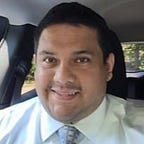How Do You Untangle Public Health From Politics? Very Carefully, and Not Easily
All you need to do to be in control of public health — and life and death decisions — is to win a popularity contest.
Politics control public health in the United States of America. Elected officials have a final say over most public health decisions, directly or indirectly. They have a say not necessarily because they are subject matter experts (SMEs), or because they are educated in any way about topics such as infection prevention, public health, or epidemiology. Their say comes from the legal authority given them by the United States Constitution and the laws passed by the federal or state legislatures, or even the local boards or councils. Essentially, all one has to do to have ultimate power over the health of the public is to win a popularity contest.
The COVID-19 pandemic offers the perfect, real-time example of how even the best plans can go sideways. From how the Trump Administration reacted to the initial phase of the pandemic to how the Biden Administration is responding now, there are inherent flaws in allowing one person at the top — the President of the United States — to have this much power over how public health responds to a national emergency. Others with similar powers, the governors…
